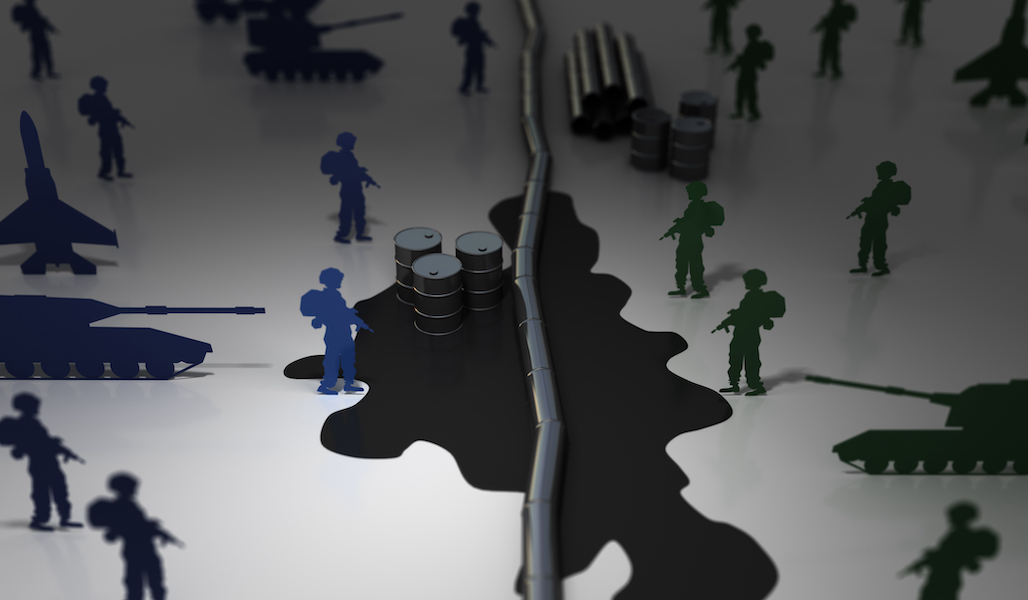

The world’s new balancing act: punish Russia without devastating global markets
The suspension of Russian oil exports would cause a global capacity crunch, says senior research analyst with Foyston, Gordon & Payne.
- Featuring: Zeba Mirza
- March 1, 2022 March 1, 2022
- 18:01
- From: Foyston, Gordon & Payne

(Runtime: 4:40. Read the audio transcript.)
**
Russia’s oil exports will be extremely difficult to replace if the current conflict disrupts the region’s energy supply chain, says Zeba Mirza, a senior research analyst with Foyston, Gordon & Payne, and a specialist in energy markets.
Western Europe will feel the worst of the pinch, she said, if Russia’s 7.5 million barrels of oil per day don’t make it out of the country.
Russia is “the largest supplier of gas to the EU. If something was to disrupt these flows, then I don’t think we have the global wherewithal to really offset them,” she said.
Mirza pointed out that OPEC’s spare capacity is 3.5 to 4 million barrels a day, not nearly enough to replace Russia’s contribution. Even with an additional 1.2 million barrels a day from Iran — which would take at least six months to come online — capacity would still be strained.
“Honestly, I think the world is faced with a balancing act and it’s not an easy one,” she said. “What they’re trying to do — the White House and the EU — [is] they’re trying to sanction Russia without trying to disrupting global energy flows. And that is really hard to do.”
The sanctions include disconnecting Russian banks from the Society for Worldwide Interbank Financial Telecommunication (SWIFT) protocols and reducing the country’s access to foreign exchange reserves. Both actions, which she said have proven effective against rogue nations in the past, will make it very difficult for Russian oil companies to continue doing business. Already a number of global oil giants have announced plans to leave Russia or discontinue funding projects there.
The German government has also halted the certification on the Nord Stream 2 pipeline out of Russia — something Mirza described as a largely symbolic gesture.
“The thing to remember with that is, that is not a flowing pipeline. That is a brand new pipeline. No volumes are flowing,” she said. “They haven’t actually gone in to dismantle a pipe. They just said we’re not approving it right now.”
And oil is not the only pawn on the chess board. Russia is a significant exporter of a number of global commodities, including wheat, palladium and ammonia.
“So, at some point this is going to contribute to inflation in a significant way; food inflation especially,” Mirza said. “It is hard to go into a conflict of this kind of magnitude and for the global economy to be exempt from any impact.”
Mirza said innumerable variables make it pointless to try to predict the next few days, much less the next few weeks. About the only thing that is truly clear, she said, is that Russia’s invasion of Ukraine constitutes a paradigm shift from the world we thought we knew.
“This is the largest security threat we’ve faced since World War Two,” she said. “It’s going to change the way that we think about global security.”
**
This article is part of the Soundbites program, sponsored by Canada Life. The article was written without sponsor input.
